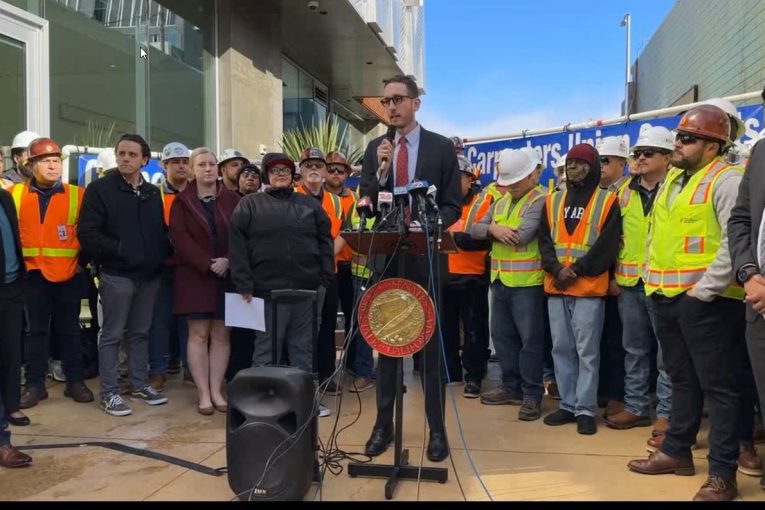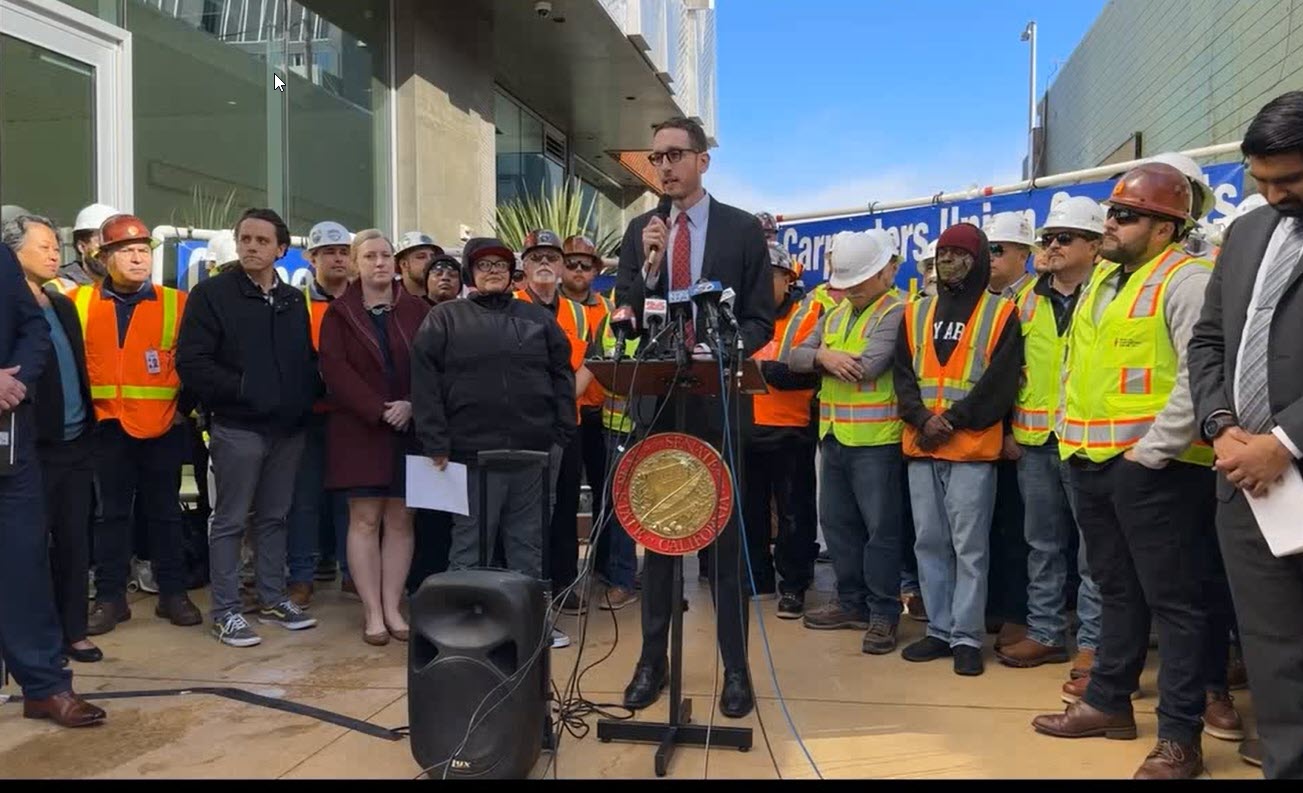

By David M. Greenwald
Executive Editor
Sacramento, CA – With a recent court ruling regarding a housing project in Berkeley, the Governor and Legislature are focused once again on the housing crisis and the barriers that CEQA (California Environmental Quality Act) presents. The question is whether the legislature will be able to take on these issues in the current term.
Senator Scott Wiener has introduced SB 423 which would extend the current streamlining of housing production and the so-called “builder’s remedy” permanently.
In a recent interview on Fox 40, Senator Wiener explained, “California has a massive shortage of new homes. When you look at all 50 states and you look at the number of homes for the entire state compared to our population homes per capita, we rank 49 out of 50.”
Wiener said, “We’re short millions of homes and you can see the results, the explosive cost of housing. And it’s no longer just in places like San Francisco or, or Berkeley. It’s everywhere. And it’s pushing out middle class and working families. It’s pushing poor people into poverty.”
He explained that “we need to make it easier and faster to build new housing at all  income levels – from low income housing to market rate housing… That’s what we’re trying to do, make it easier and faster to get housing created for our residents.”
income levels – from low income housing to market rate housing… That’s what we’re trying to do, make it easier and faster to get housing created for our residents.”
At the same time, CEQA has been weaponized as a tool to stop new housing projects.
Reacting to the court decision in Berkeley, Senator Wiener said in a hearing last week, “College students, according to the court are pollution. And so they have to be mitigated, um, as if they were like tailpipe, like exhaust or like fumes from a refinery.”
Wiener explained, “That’s literally how the California Court of Appeal classified college students who are just trying to get an education at UC Berkeley and be part of the middle class and yet they’re pollution. That’s how far CEQA has fallen from what it was intended to do, which was to actually protect the environment.”
In Senator Wiener’s view, CEQA must be fixed.
At the same time, he acknowledged, “I’m an ardent environmentalist. Climate change is an existential threat to our planet.”
CEQA, he said, has an important function along with other environmental law, as “there are some important things that it does to make sure we’re not putting all sorts of highly polluting industrial or oil refinery uses in the people’s neighborhoods.”
He said, “But CEQA has been… weaponized often by NIMBYs who don’t want new housing or bike lanes or bus lines in their neighborhood. They’re entitled to have that opinion, but they should not be allowed to use an environmental law to stop environmentally sustainable development.”
Senator Wiener noted that CEQA has been used to slow down or kill multifamily housing next to a train station.
“(That’s) exactly where we should be building apartment buildings,” he said. “From a climate perspective, it’s been used to oppose and slow down new bike lanes, new public transportation, clean energy. It’s been weaponized.”
He said, “Here we have the California Court of Appeal who is allowing NIMBYs to use CEQA to stop 1100 units of student housing at UC Berkeley.”
He noted that we have huge problems at UC, CSU and the community colleges with student homelessness.
“We need a ton of new student housing,” he continued. “That’s great that UC Berkeley wants to build 1100 units. That’s amazing. And the court is allowing NIMBYs to abuse environmental and environmental law to stop it.”
He explained “in doing so, the Court of appeal ruled that students are pollution, that because students are known to make noise, we’re all students at one point. Human beings make noise, human beings of all age. There are older people who also make noise, who talk loud, who have parties, who play music. But the students are apparently now pollution because they’re sometimes noisy.”
He said, “They’ve classified that as an environmental impact under an environmental law, that’s absurd. We’re not talking about noise, like massive deafening noise from a, from a new factory or something, that this is about people, human beings talking or socializing or playing music. So it’s an absurd ruling, and it is now going to empower NIMBYs up and down the state to argue that, well, if you put these new residents in, they’re going to make noise. And that’s an environmental problem.”
Senator Wiener noted that there is bipartisan agreement—though not a universal agreement—that agrees that housing should be built on the UC Berkeley campus and also that CEQA is being abused.
“My hope is that we’re going to have a bipartisan, bicameral—both Assembly and Senate—effort to try to make some common sense changes to make sure CEQA is a pro-environmental law, not a NIMBY law.”
He also said it needs to help fight climate change.
“Putting student housing on campus is one of the most climate friendly things you can do,” he said. “Those students are probably not going to have a car. They’re going to walk to school, walk to eat, walk to the library, they’ll be able to walk everywhere or take a bus. Why would we want to make them live further away from campus where they might drive more?”


“When you look at all 50 states and you look at the number of homes for the entire state compared to our population homes per capita, we rank 49 out of 50.”
“We’re short millions of homes and you can see the results, the explosive cost of housing. And it’s no longer just in places like San Francisco or, or Berkeley. It’s everywhere. And it’s pushing out middle class and working families. It’s pushing poor people into poverty.”
Wiener is spot on.
Ron Glick is also spot on.
“Putting student housing on campus is one of the most climate friendly things you can do,” he said. “Those students are probably not going to have a car. They’re going to walk to school, walk to eat, walk to the library, they’ll be able to walk everywhere or take a bus. Why would we want to make them live further away from campus where they might drive more?”
That seems to apply perfectly to the University Mall as well
A few things to remember:
1. The court’s ruling may not survive the appeal to the CA Supreme Court.
2. The ruling didn’t kill the project, it just requires that UC amend the environmental documents to address the shortcomings.
3. Even if student noise is upheld as an environmental impact, CEQA doesn’t require that all impacts be fully mitigated in order for a project to move forward; some that are significant but not mitigable below threshold levels can yield to overriding considerations.
“1. The court’s ruling may not survive the appeal to the CA Supreme Court.”
The SC declined to review the last one and a lot of people think the same will be the case with this one.
Don’t bother, Jim. You’re not going to be able to deflect self-righteous indignation, or the war that the Wieners of the World have declared on cities.
The only way to beat this is to eliminate them (politically). And that can be done indirectly, by bypassing them totally (e.g., a state proposition).
And the only way to do that is to band-together with other groups who are already fighting them in response to the war that these so-called representatives have declared.
No individual city is going to be able to fight them. It has to be a group effort.
To all participants: please stick to the topics and avoid personal attacks and derogatory comments.